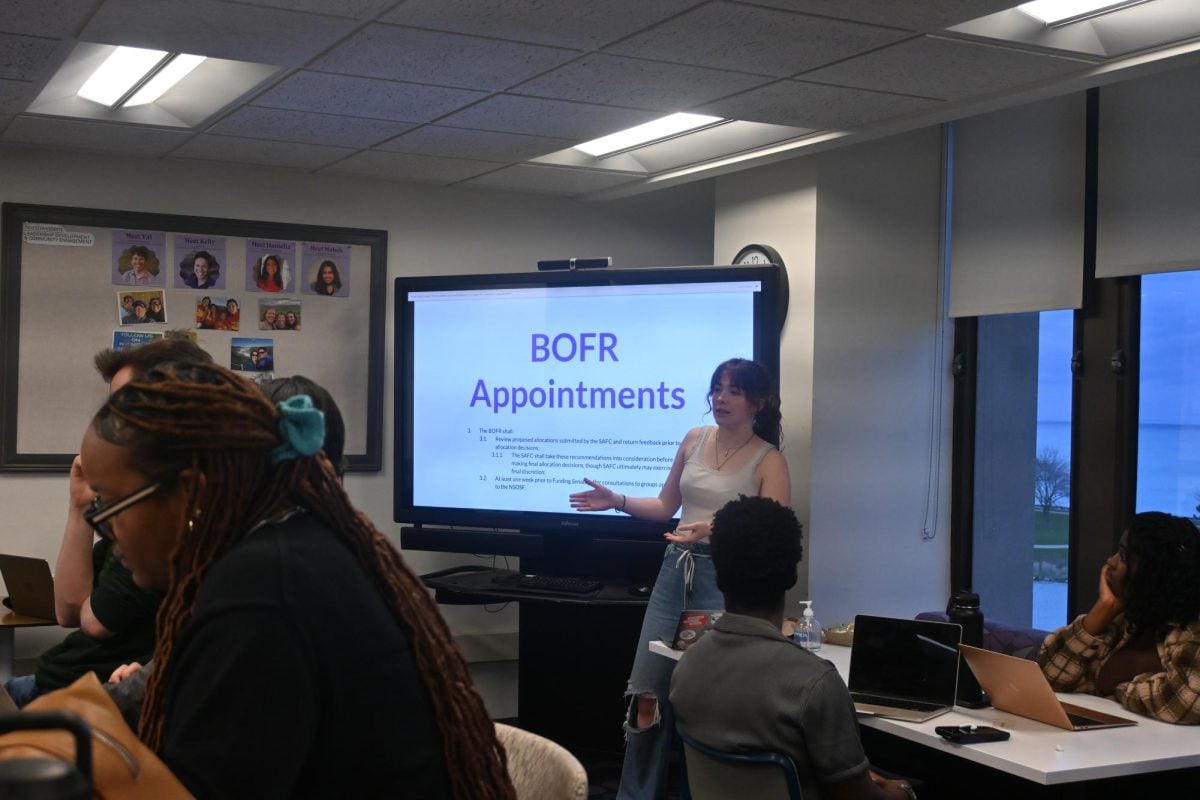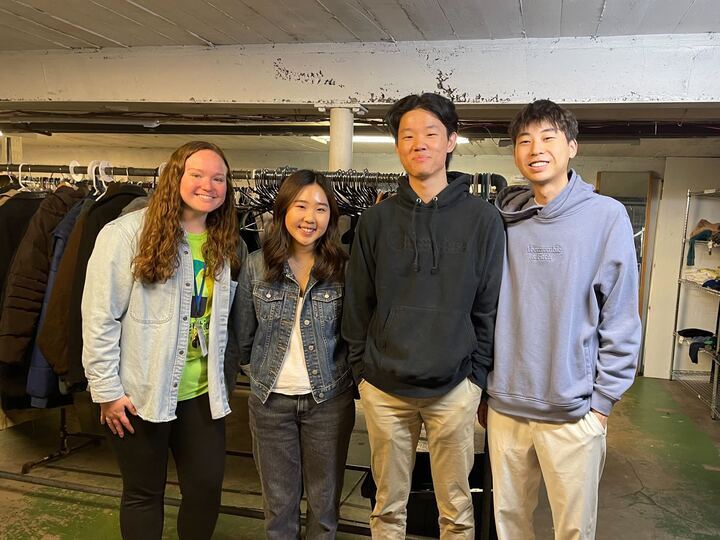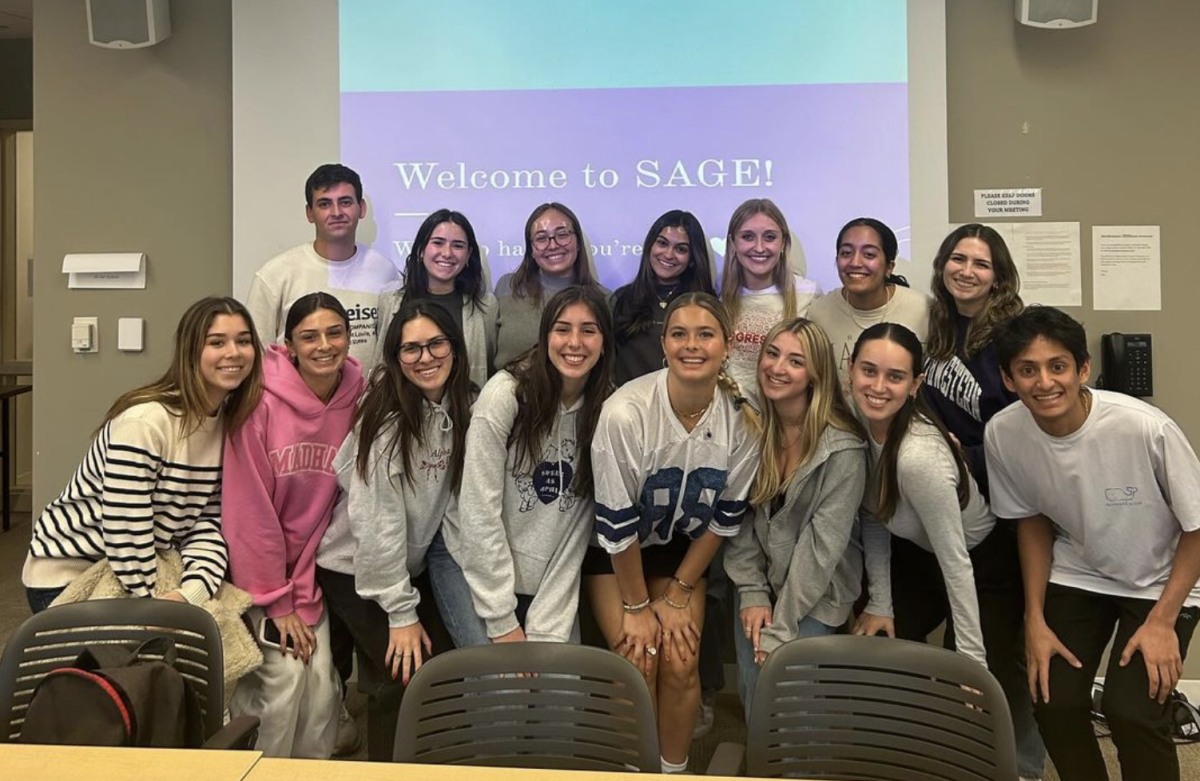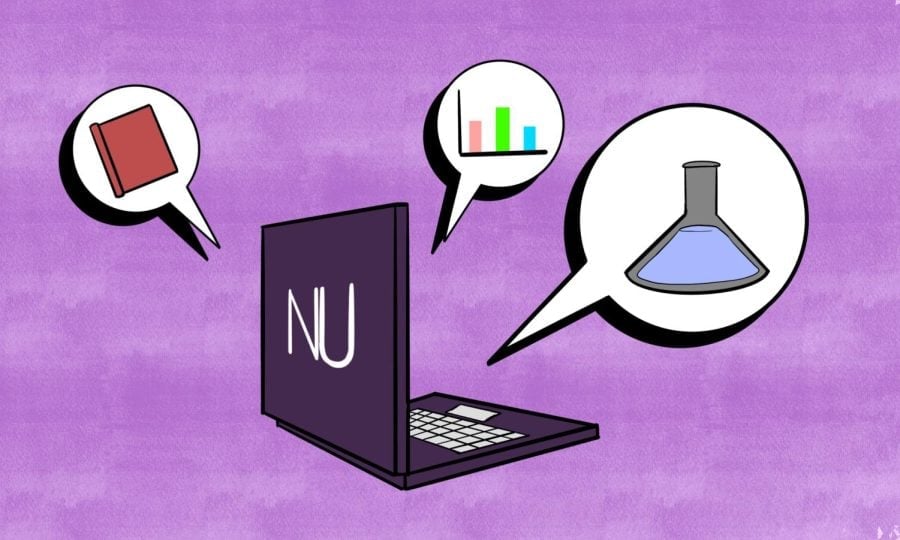SESP senior Becca Portman does not take sides. Her position at the helm of Northwestern’s largest voter registration initiative demands that she remain nonpartisan.
But it doesn’t take a diehard Democrat or Republican to gauge the pervasive apathy that grips college campuses every election season.
“It sort of creates a self-fulfilling prophecy when young people don’t vote,” said Portman, the program coordinator for NU Votes. “Our needs and voices aren’t represented, and then we get disillusioned with politics and we don’t vote. So the change that we want to see happen doesn’t happen.”
In a mid-October survey, less than half of young adults told Harvard pollsters they will “definitely” vote in today’s presidential election. The same survey found that just a quarter of young adults consider themselves “politically engaged” this election cycle.
Portman’s diagnosis — mixed with a never-ending slew of less-than-promising statistics — begs an age-old question facing young Americans: “Why vote?”
Over the past few months, The Daily presented that same question to a dozen politicians, pundits and students. Their answers ranged from cheerily optimistic to nakedly resentful of the political process.
“You’re a citizen, you’re of age, you should register to vote,” University President Morton Schapiro told The Daily on Monday. “It’s just the right thing to do. Some people (say) it doesn’t make a difference here (in Illinois). … Oh, whatever. You’ve just got to vote.”
After speaking on campus last month, Newark, N.J., Mayor Cory Booker framed the choice to vote as a broader referendum on competing economic visions. The rising-star Democrat, who has been aggressively stumping for Obama, urged Northwestern students to consider what type of job market they want to enter once they graduate before pulling the lever for a specific candidate.
“I’m not really one that wants to go back to the economic policies of the past that really undermine the strength of our democracy, that cause more stratification of wealth,” Booker told The Daily. “(Those policies) undermine the larger national purpose for which we live, which is the simple understanding that we need each other and that we will go so much further if we go together.”
Booker was not the only prominent Democrat to tailor the party’s election-year rhetoric to youth interests.
“Young people have so much at stake,” Rep. Jan Schakowsky (D-Ill.) told The Daily last month, ticking off several issues that she believes directly affect college-age voters.
Schakowsky pointed to Obama’s signature health care reform law, which allows young adults to stay on their parents’ health insurance plans until age 26. She cited the president’s efforts to drive domestic job creation — employment that could eventually benefit college graduates. She dinged the GOP opposition for trying to limit access to contraceptives and abortions, admonishing Republicans for trying to reverse “victories that we thought were decided” for women.
NU College Republicans president Dane Stier admitted that some of the GOP has turned off much-needed voters with harsh rhetoric on issues such as women’s health. But he rejected the notion that Democrats are offering a better economic argument.
“Fifty percent of college graduates will move back in with their parents,” Stier said. “Over 50 percent won’t find a job or a job that fulfills their degree. And each of us has a $50,000 debt to the government that has been accumulated by our parents and grandparents that we have to pay off in addition to the loans that we take out.”
In an interview with The Daily last month, conservative columnist Dennis Prager echoed Stier’s emphasis on mounting debt as key motivator for college-age voters. Prager said it “makes absolutely no sense” for a young person to support the Democratic Party as the nations grapples with a federal debt exceeding $16 trillion.
“It boggles my mind that a young person would not realize what a Ponzi scheme is being foisted on them,” Prager said. “When I watch young people think that there’s something in it for them or better for society to vote Democrat, it only proves to be one of the biggest beliefs of my life that most young Americans … have been immersed in only one way of looking at life.”
For some NU students, the decision to vote is more motivated by the competitive contrast between Obama and Romney.
Communication freshman Carolyn Betts, whose education is being partly funded by student loans, said Romney may have “great economic ideas,” but she cannot vote for someone whose platform seems entirely based around job creation.
“Romney has great ideas to balance the budget, but that’s not all our nation needs,” she said. “He’s so focused on creating jobs … he’s losing sight of the American people.”
Portman said most students do not recognize that what they already do on campus — committing themselves to student groups and volunteering for various causes — can be translated to political engagement.
“It’s an important step towards becoming a citizen and an adult active citizen to cast your vote,” she said. “It’s important to start those habits early because you’re in college and you will then keep doing it for the rest of your life.”







